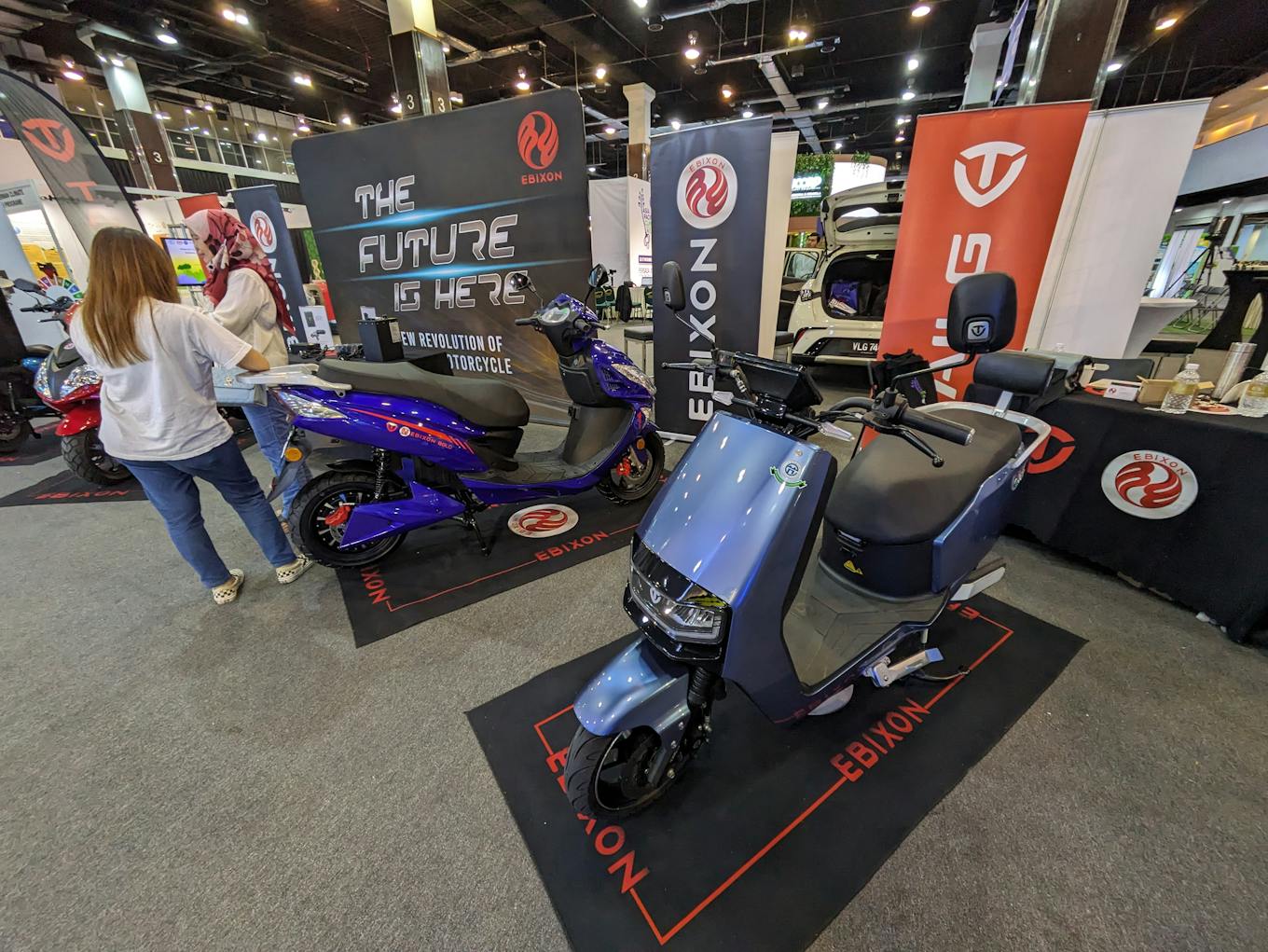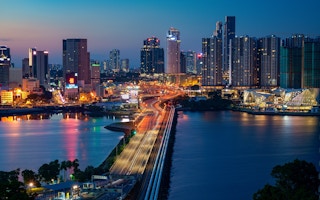Malaysia’s Johor state is considering installing large-scale solar power fields to leverage neighbouring Singapore’s clean power import needs, and is in talks to explore the potential for electric vehicle (EV) infrastructure as part of a proposed Johor-Singapore special economic zone.
Both efforts are at the preliminary stage, but they could deepen economic ties between the two jurisdictions separated only by a narrow strait. They also reflect Johor efforts to capture opportunities from the sustainability policies of both the Singapore and federal Malaysian government.
The moves revolve around a “Johor Green Deal” unveiled by the state government at the Asia Pacific Climate Week conference. The deal seeks to preserve biodiversity, utilise resources sustainability and promote equitable growth for the populous state which saw an 8 per cent rise in gross domestic product last year.
No quantified targets were published, but the policy framework up till 2030 also recommended initiatives such as statewide emissions reporting, mandates for domestic renewables and fighting flash floods with nature-based solutions.
Large-scale solar
Johor should attract investments to grow large-scale solar energy projects by 2025, the state government indicated in a policy brief for its Green Deal, which also noted Singapore’s desire for low-carbon electricity imports from its neighbours.
Concurrently, Johor’s state investment firm Permodalan Darul Ta’zim (PDT) on Monday signed an agreement with the renewables arm of Malaysia utility firm Tenaga Nasional Berhad on Monday to develop large solar projects. The state investor will scout potential locations, while the power provider will lead project development and asset management.
Natural gas-reliant Singapore had in 2021 issued a call for 4 gigawatts of low-carbon energy imports by 2035 from its neighbours, though Malaysia’s federal government opted out then and only lifted a renewables trade ban in May.
The Singapore government has already given initial nods this year to electricity import proposals exceeding the 4-gigawatt target from Indonesia, Vietnam and Cambodia. However, the city-state is also studying if it can accept more projects.
Any Johor electricity export project will likely have to compete with over a dozen existing proposals, including one in another Malaysia state, Sarawak, which wants to export up to 1 gigawatt of hydropower to Singapore.
Malaysia, meanwhile, has recently stated that it wants 70 per cent of its electricity to be generated from renewables in 2050, up from under a quarter currently. Johor today primarily uses coal and gas for power generation.
Electric drive
The Johor government is in talks with Singapore over charging standards for electric vehicles (EVs), and is exploring whether EV infrastructure should feature in a proposed special economic zone, said Lee Ting Han, chairman of Johor’s investment, trade and consumer affairs committee.
The special economic zone, to be situated in Johor, is a widely anticipated deal currently being negotiated by Malaysia and Singapore. An agreement could come as early as January, and may involve measures such as tax incentives and easier work travel arrangements.
Singapore will stop registering new petrol cars from 2030 and phase them out entirely by 2040. The Johor government has said it needs to beef up its EV infrastructure to prepare for more battery-powered cars making cross-border trips. As it stands, over 100,000 vehicles cross between Singapore and Malaysia via Johor daily.
There have already been several private sector ventures to make thousands of cross-border charging facilities for electric cars compatible, involving major companies such as Malaysia’s Yinson and Tenaga Nasional Berhad, along with Singapore’s ComfortDelGro and Charge+.
Johor state aims to install 1,100 charging stations by 2025, as part of a federal plan to have 10,000 units installed across Malaysia by then.
“We don’t see ourselves as a competitor, but as a partner [with Singapore] and we can complement each other,” Lee said of the relationship between Johor and the city-state.
Meanwhile, Johor is also considering a “green lane” scheme at its customs exclusively for electric motorcycles crossing between Malaysia and Singapore, Eco-Business understands.
Johor and Singapore shares two land border crossings – a central causeway and a bridge to the west. There are currently 100 motorcycle lanes across the two Malaysian immigration checkpoints, with plans to add 50 more in the future.
On Tuesday, PDT inked a deal with Ni Hsin EV Tech, which markets the Ebixon line of two-wheelers, to promote the use of electric motorcycles to the Johor state government. Fifteen bikes will be donated by Ni Hsin EV Tech to PDT for distribution to the Johor state.

Electric two-wheeler models by Ni Hsin Group at the Asia Pacific Climate Week held in Johor, Malaysia. Image: Eco-Business/ Liang Lei
Flood woes
The Johor Green Deal will also seek to use urban biodiversity to better manage flash floods, which often inundate the state during the Northeast monsoon season, typically between November to March.
PDT signed an agreement with Johor’s state forestry department and Malaysia’s forest fund to develop nature-based solutions in the state, which will also generate carbon credits.
Malaysia’s Iskandar Investment Berhad, which is developing a new Medini city in Johor state, is also working with Maybank, Malaysia’s largest bank, to explore carbon projects around hundreds of hectares of mangrove forests.
About 42,000 people were evaluated to relief centres in Johor due to heavy flooding in March this year. Five people died and the total damage was estimated at over RM6 billion (US$1.3 billion).
“I pray and hope that I will never see Johoreans as miserable as they were during that time ever again…the threat of climate change is real,” said state chief minister Onn Hafiz Ghazi at the launch of the Johor Green Deal.
Johor’s emergency response department said last week that it has identified 874 flood-prone areas, and has over 1,200 officers ready to respond to incidents.
Across Malaysia, over 8,400 relief centres have been set up, which can accommodate over 2 million people.

















